It seems we can’t find what you’re looking for. Perhaps searching can help.
Sign Up for newsletter!
Subscribe to get the latest eBook!
Hotline






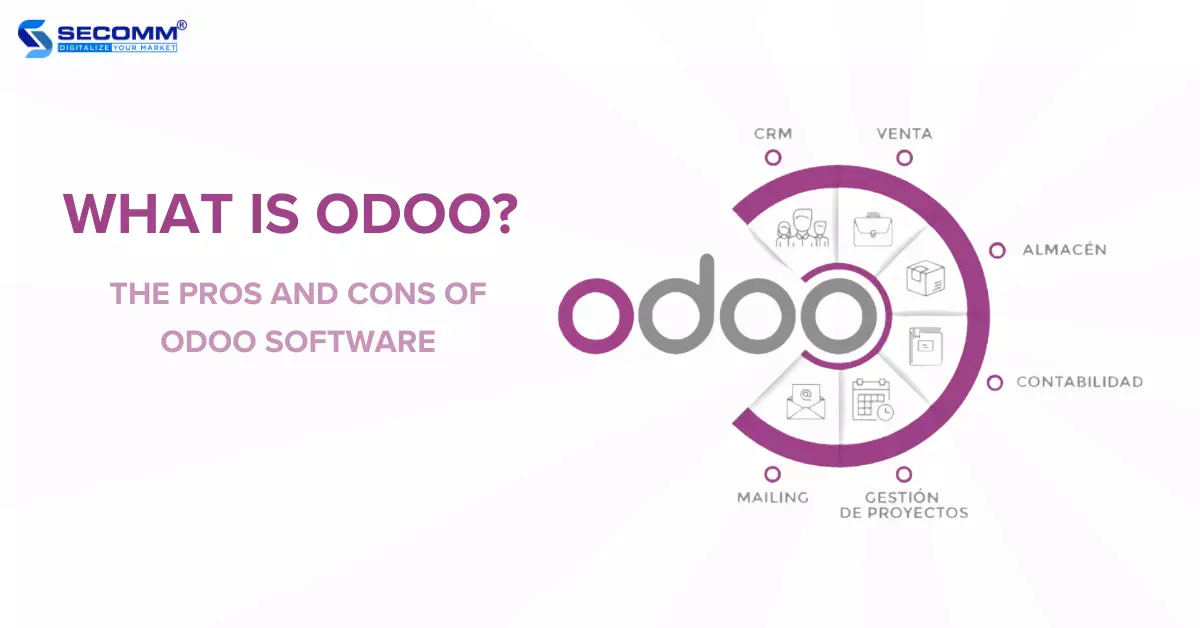
In today’s landscape, ERP software plays a pivotal role in the efficient management and operation of eCommerce activities. Among them, Odoo ERP stands out as pre-configured management software, tailor-made for businesses for easy downloading and utilization, providing a range of solutions to support various business facets like sales, marketing, inventory, customer service, and more. The subsequent article aims to elucidate the concept of Odoo ERP and delve into its strengths and weaknesses when integrated within enterprises.
Odoo, also known as Odoo ERP and previously called OpenERP, is a versatile open-source business management software. It comes with complete integration and customization capabilities, catering to offer a comprehensive solution for overseeing diverse facets of eCommerce operations.
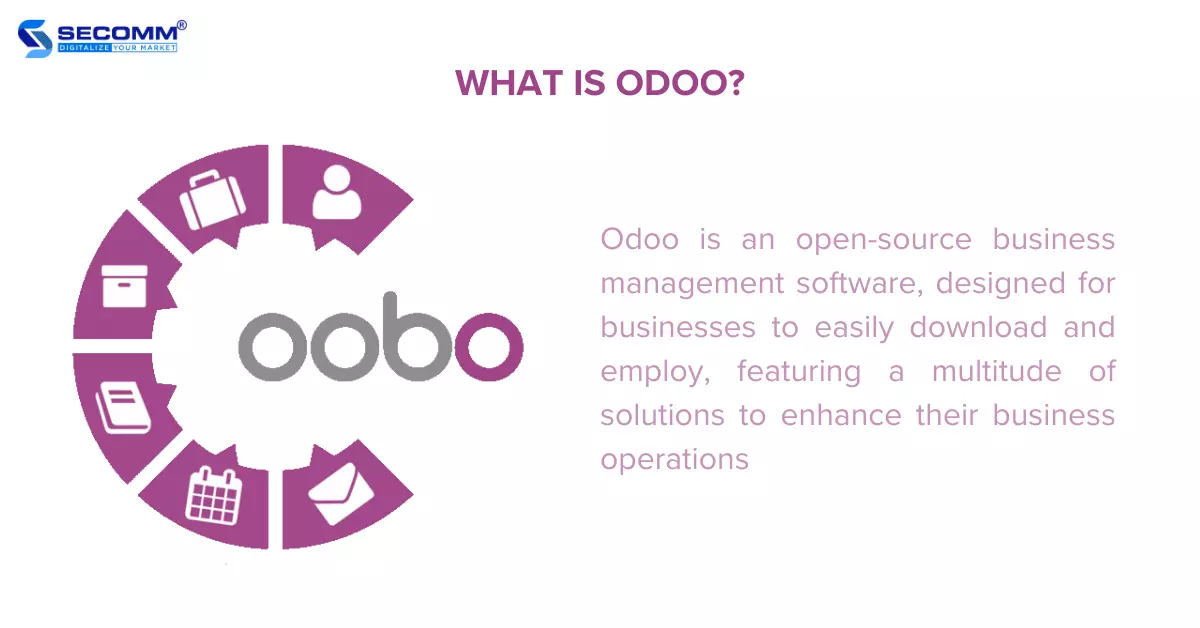
Among its noteworthy functionalities are sales and marketing management, customer relations, project oversight, manufacturing, inventory control, accounting, human resource administration, customer service handling, and a plethora of other applications. As a result, Odoo is adept at fulfilling the real-world business requirements of enterprises spanning all sizes and budget ranges, across many industries.
There are various editions of the Odoo software, with the most recent being Odoo 16; additionally, Odoo 17 is anticipated for release towards the end of 2023. With respect to version 16, the development team has incorporated numerous features and tools to bolster business efficiency, concurrently concentrating on refining a host of existing attributes. Odoo 16 stands as a source of pride, being the swiftest, most visually appealing, and intuitively designed version.
The Odoo management software is available in two primary editions that every business should thoroughly explore before implementation.
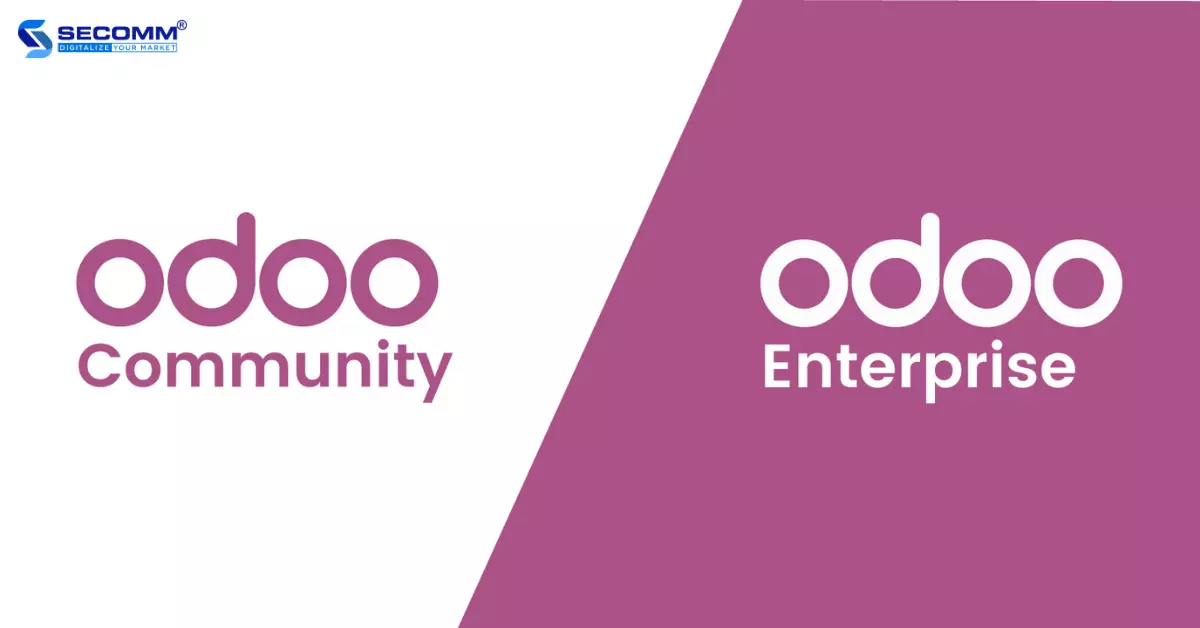
This version of Odoo is free for users to download and use. The Odoo Community edition offers a wide range of features and modules that support essential business operations such as sales management, marketing, customer relationship management, inventory management, accounting, and more.
The Odoo Enterprise edition is a premium, paid version with multiple editions tailored to businesses of all sizes. The Enterprise edition is designed to provide advanced features and modules that enhance operational workflows. The cost of the Odoo Enterprise edition is determined by five factors: the number of users, the number of utilized apps, hosting type, deployment services, and integration with third-party systems.
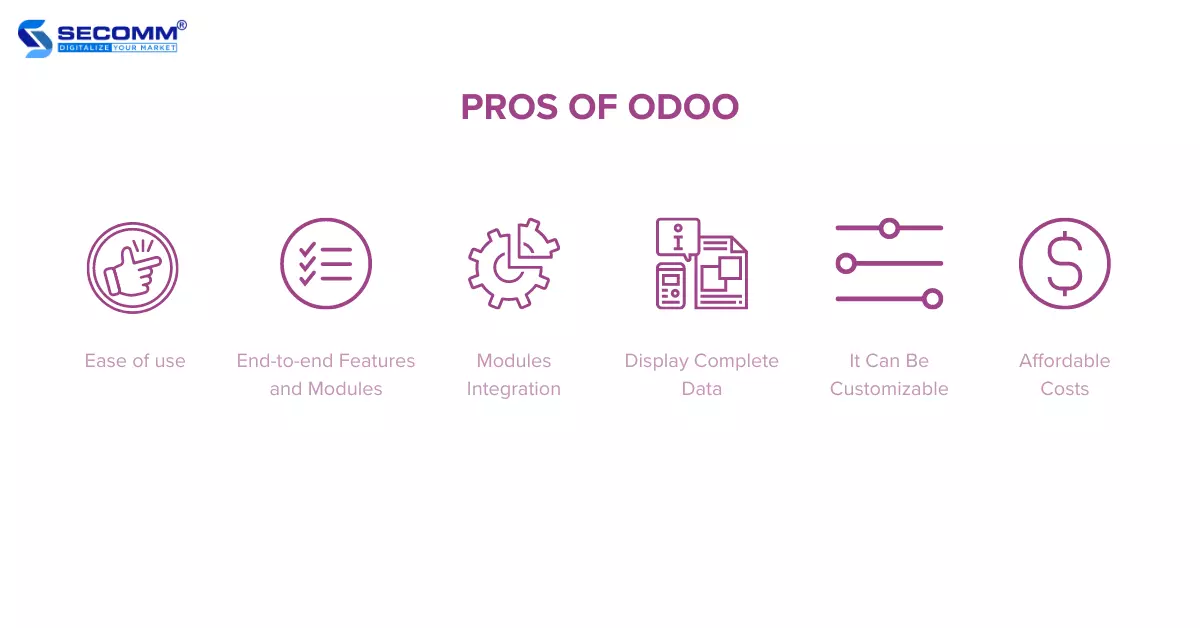
The Odoo interface boasts a simple and intuitive design, with modules logically and systematically organized. As a result, new users will quickly become proficient without investing an excessive amount of time.
Odoo offers an expansive array of features and modules, spanning from fundamental to advanced, to address all requirements for effective business management and operations. These encompass tasks such as sales management, marketing, customer support, accounting, inventory control, and manufacturing.
As businesses embark on Odoo implementation, they can initially utilize the complimentary Community edition and subsequently migrate to the paid Enterprise edition, unlocking the full spectrum of capabilities, modules, services, and progressive enhancements.
Previously, businesses used to store information and data within individual department databases, leading to challenges in accessing and sharing information across departments. With Odoo, apart from providing the necessary modules for management and operations, it also aids businesses by integrating and storing data from all departments in a unified database, facilitating quicker and more convenient management and tracking.
Besides storage and integration, Odoo also holds the advantage of presenting comprehensive information. For instance, the ability to showcase detailed and complete data assists businesses in effectively managing product inventory levels on a daily or monthly basis, encompassing future shipments that have not yet been recorded.
Moreover, businesses can better control working capital by gaining insight into their inventory status. Furthermore, the availability of all information in a unified database fosters collaboration and streamlines the accomplishment of complex tasks. This results in improved workflow processes, enabling businesses to effortlessly monitor interdepartmental processes with efficiency.
Another benefit of Odoo software pertains to its customization potential. Odoo allows users to tailor the software to their requirements without the necessity of writing code. Thanks to its intuitive and user-friendly interface, individuals without extensive programming skills can also make adjustments.
Comparatively, the cost of utilizing Odoo is quite reasonable in comparison to other ERPs. For businesses with a single function requirement, there is no charge for using Odoo, allowing for long-term usage. However, when utilizing two or more functions, businesses receive a 15-day trial period, followed by a moderately priced subscription.
Costs escalate further if the customization and programming of additional modules are aligned with the business’s direction are required. If a business possesses an internal team to perform these tasks, the development costs can be avoided. In practice, businesses will need to seek support from specialized Odoo experts.
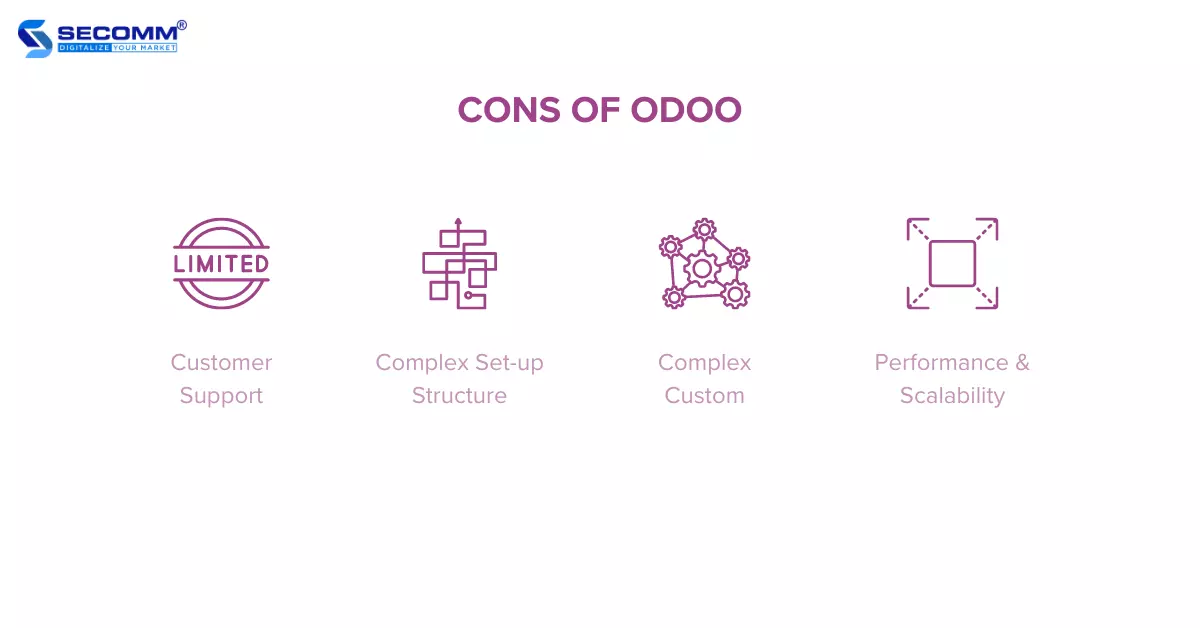
Because of constrained resources and a vast user base, Odoo is unable to offer top-notch customer support to every client. Certain customers have found themselves dissatisfied as their concerns weren’t entirely resolved during their initial support interactions. Furthermore, the cost of Odoo training is quite substantial, rendering it unfeasible for small businesses to establish a specialized Odoo support team.
Much like other present-day ERP software, Odoo’s structure can pose difficulties during the initial setup for businesses adopting it for the first time. This can result in a time-consuming and effort-intensive process of addressing setup-related issues
While Odoo provides numerous built-in functionalities, being a universal ERP solution for diverse business models worldwide means that adapting Odoo to a particular business type or a specific country requires customization.
Odoo does offer customization options, but for highly specific or complex customization requirements, it might necessitate developers with extensive technical expertise and experience. This could potentially lead to extra costs for customization and overall maintenance.
Although Odoo can meet the deployment requirements for a variety of business scales, its performance, and scalability may raise considerations for larger enterprises with substantial transaction volumes. Hence, businesses should strategize their development and assess scalability aspects prior to choosing, ensuring effective operations.
With many years of eCommerce deployment and integration of various ERP systems for numerous global enterprises, SECOMM comprehends the challenges businesses face when implementing the Odoo ERP system.
Contact SECOMM or call the Hotline (02871089908) now to receive consultation on Odoo implementation.
 2
2
 15,861
15,861
 0
0
 1
1Subscribe to get the latest eBook!
Hotline